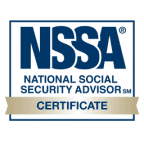Unfortunately, Medicare fraud is a daily reality for people all over the nation. It can have immediate impacts on fraud victims, and fraud even contributes to increased Medicare costs for every recipient. This article provides four easy steps so that you can follow to avoid ever becoming a victim of Medicare fraud and abuse.
Know what to expect
Share sensitive information sparingly
Exercise caution when offered free or unnecessary health services
Reconcile Medicare statements with personal records
Know What to Expect
To help prevent Medicare scams and fraud, Medicare has laid out rules for interacting with beneficiaries. Medicare has also created rules for when plan representatives and insurance agents speak to Medicare recipients about their plans for an additional layer of protection.
Knowing at least the basics of these rules can help you to identify scammers, which may come in handy someday.
This article has important tips and tricks about interacting with Medicare, as well as some red flags to pay attention to. Additional information on this topic can be found on Medicare.gov.
Medicare
You will never receive a home visit or sales call from government employees of Medicare. To enroll in Medicare Parts A and B over the phone, you must contact Medicare first.
Similarly, Medicare will not call you asking for personal information unless you have already given officials permission to be contacted for this information.
Red Flags:
A person that you don’t know and have never met calls or stops by your home and says they are from Medicare.
A person claiming to be from Medicare asks you for personal information or calls you to talk about enrolling in the program.
Medicare plan representatives
Medicare plan representatives do not market plans at in-person educational events, health care facilities, or at your home. Additionally, they will not give you cash or gift cards over $15, nor will they provide free meals during a sales pitch.
A Medicare plan official will never collect payments from you when you enroll. Medicare bills are sent through the mail.
If you have recently enrolled in a plan, you may be contacted by the plan or the agent that helped you enroll. At this time, you might be asked to give personal information if the agent needs to verify your membership.
Once again, the plan will send a bill in the mail. A genuine agent will not ask you to make a payment on the spot or over the phone.
Red Flags:
After a sales pitch, an agent gives you a free meal or offers you an incentive to entice you into enrolling in a plan.
You are at an in-person educational event that only offers plans with strings attached.
Insurance agent meetings
If you’re talking to an insurance agent about Medicare plans, you will get detailed information about how and where to learn more about the plans. At an agent meeting, the agent will only discuss Medicare plans with you, and they may ask you to fill out a Medicare Scope of Appointment form preceding the meeting. A real agent will not pitch you on any non-Medicare-related products.
During this meeting, the agent may ask you for personal information in order to verify your eligibility for Medicare or to finish enrolling you in the program. The agent can also ask you to fill out or return an enrollment form during these meetings.
At an agent meeting, there will not be processing fees, pressure, manipulation, or any aggressive sales tactics of the sort.
Remember, Medicare rates and Medicare Advantage and prescriptions drug plans get rated annually. You can ask your agent about these ratings, and you may hear that a plan has a high rating from Medicare. However, ratings are never described as “best” or “top-ranked.”
Red Flags:
You’re meeting with an agent, and they discuss Medicare plans that you have never expressed an interest in, and/or the agent attempts to sell you non-health-related products such as life insurance.
The agent asks you for a processing fee.
The agent uses high-pressure sales tactics to scare you into buying a plan.
The agent describes the plan as the “best” or “top-ranked.”

Share sensitive information sparingly
When we say sensitive information, we mean your Social Security Number, Medicare number, and other health information. These are the types of information scammers are after.
Only share this information with someone that has a legitimate need for it. If you’re at a doctor’s visit and they need your health history, that is an acceptable time to share this information. The doctor’s office will also need your Medicare number for billing purposes.
If, at the moment, you are unsure about whether or not to share this information, hold off on sharing. You can double-check with a close friend or family member before disclosing information. It’s always better to be safe than sorry.
Exercise caution when offered free or unnecessary health services
Be wary of anyone offering free healthcare services. If the person offering the free service needs your Medicare information, they may be planning to charge the service to Medicare after all. This would put you in the position of unwittingly participating in Medicare fraud, so, as a general rule, stay away from free services.
Also, be sure to only receive healthcare treatments and services as needed. Taking unneeded care can be considered fraud. Find a doctor you trust, and do not be afraid to ask questions if you are recommended treatment to understand the situation.
Reconcile Medicare statements with personal records
When you receive billing statements in the mail, make sure to look over the details and reconcile them with the care you received. Should there be any differences, contact the hospital or doctor’s office to find out more. They will resolve any billing errors if necessary.
If the billing discrepancies cannot be explained by error, you can report the case to Medicare as fraud.
Conclusion
Knowing what to expect from Medicare and from your Medicare plan representative makes it easier to spot fraud and/or suspicious behavior. Hopefully, this article will also help you to understand what to expect from a good insurance agent and agency.
Also, remaining wary of sharing personal and identifying information, as well as avoiding free health services, helps to prevent fraud. Lastly, be sure to reconcile your billing statements with the services you received to help you catch any billing errors or fraud.








